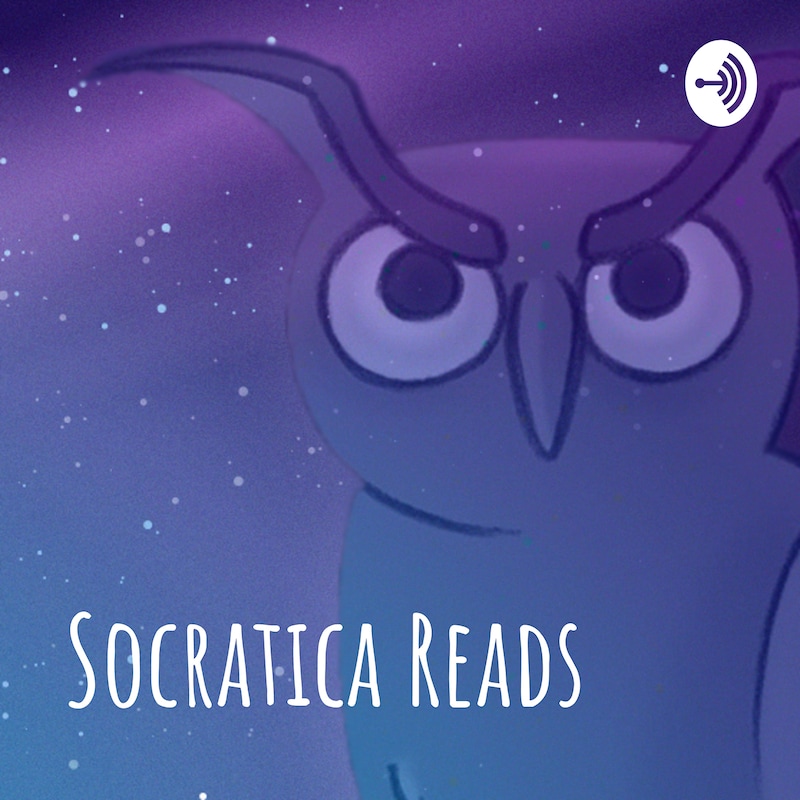Kimberly Hatch Harrison (co-founder of Socratica) created this podcast to share her love of reading and to foster the development of this excellent habit. In this episode, Kim talks about what happens when everyone is recommending a book that just isn’t that great (cough cough The Three Body Problem) and how you can come back with a better book that explores similar themes (Childhood’s End by Arthur C. Clarke).
Childhood’s End by Arthur C. Clarke
https://amzn.to/40FdUKC
Kim’s book: How to Be a Great Student
ebook: https://amzn.to/2Lh3XSP
Paperback: https://amzn.to/3t5jeH3
Kindle Unlimited: https://amzn.to/3atr8TJ
Sign up for Socratica Dialogue (Newsletter)
https://snu.socratica.com/join
If you'd like to talk about this podcast (and all things Socratica), you can join our Discord by becoming our Patron on Patreon here: https://www.patreon.com/socratica
Transcript:
Welcome Everybody! To Socratica Reads. My name is Kimberly Hatch Harrison, and I’m the co-founder of Socratica. You probably know us for our futuristic educational videos, including how to program in Python, SQL or “sequel” - we also have a course we’re launching on Mathematica…but the big news to a lot of programmers is what’s gonna happen now that there are some generative AI out there in the wild, like ChatGPT. What does that mean for programmers, if there’s an artificial intelligence system that can do your job faster.
Well, there’s a literary genre tailor made for helping us think about the impact technological advances have on human society. Science Fiction. We spend a lot of time on this podcast thinking in terms of scifi, because we’re sort of a forward-thinking company. Our goal is to create the tools you’ll need to be an educated person now but also going forward. That’s going to require a little flexibility.
I wonder if some of this anxiety about the future and people feeling obsolete explains why so many people have been recommending the book The Three Body Problem to me. So I read it, and it just did not do it for me. I was interested for a few reasons. It’s partly set during the Cultural Revolution in China, and I came up in science working with some people who experienced it firsthand. And it was just as tragic as you might imagine. So there’s one appealing aspect of the book. For science fiction fans, how do you reconcile humans who are so creative and capable of having beautiful visions of the future turning on each other and demonizing the very people who would help us move forward into the future?
Anti-intellectualism is a pretty scary thing for a scientist. It’s like our real-life boogeyman - it really exists, we’ve seen it happen again and again.
Now what if there was an outside influence who had immense power and could shut down these curious people. Take away all their initiative. They lose heart completely. These are some of the ideas explored in The Three Body Problem, and these ideas are intriguing and meaningful to me.
But this is not a very good book. It’s just not well-written. I don’t think it’s a translation issue - there’s a lot of great English translations of books from various other languages. It’s just so wooden. I can’t even pick a passage that’s interesting to share with you.
So what do you do when EVERYONE is talking about a hot book and you feel so disappointed by it? My response is to pick up a different book. If you’re interested in thinking about the future of humanity and what happens to scientific inquiry or technological advancements in the face of what appears to be a superior force - and some of you are being forced to consider this because GPT is coming for your job - I’d like to recommend Childhood’s End by Arthur C. Clarke.
This book asks the question - what will we do when we are presented with the tools that answer all of our questions? Will we mature intellectually, level up? Or will we devolve? Will we stop thinking and exploring? The caterpillar life has to end for there to be butterflies.
There will be people who say oh, the Three Body problem is hard sci fi. Yes. I don’t have a problem with that. But it’s not enough to just list interesting technical ideas and call it a book. We don’t CARE unless it gives us an experience. Good novel writing includes the human. Human emotions, human senses. IF you ever wonder why a piece of writing isn’t grabbing you, have a look at HOW it tells the story. Is it just an info dump, or does it actually take you some place. Does it help you understand by placing you there. Seeing the situation through someone else’s eyes? Do you get to hear what they hear, feel what they feel?
Now in this book, Childhood’s End, there are many technical details, but they are also beautiful passages. So I’m going to pick one almost at random, and I hope it entices you to pick up this book. Which is a good book.
Are you ready? Let’s begin.
{Kim reads excerpt}
So we just went on a journey with this character Jan. We saw what he saw, we heard what he heard, we had an experience, even though this is hard sci fi. Yes? Well, my Socratica Friends, I hope you are feeling like a hopeful explorer. If you’d like to discuss these ideas with other curious people, our Discord Server is open to all of our Patrons from Patreon and our YouTube channel members. Thanks for listening.
